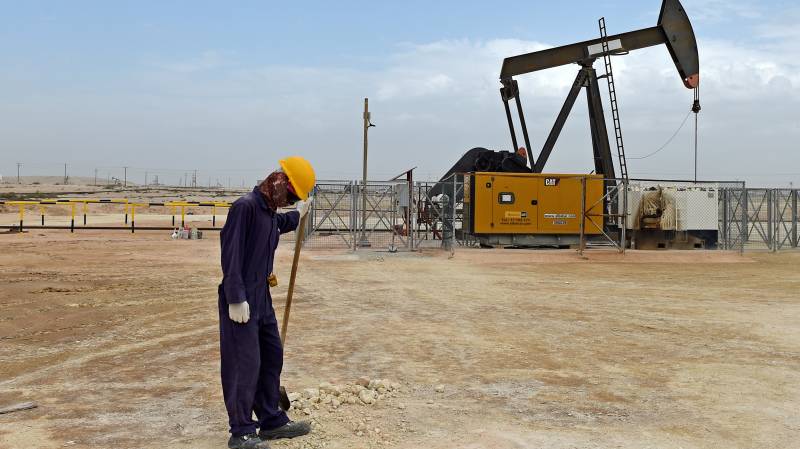Brent oil plunges to two-decade low of $15.98 per barrel

Stay tuned with 24 News HD Android App

Brent oil hit a two-decade low Wednesday as the battered crude market dominated sentiment, while the dollar struggled and stock markets managed slight gains.
The European benchmark, Brent North Sea crude for delivery in June, fell to $15.98 per barrel -- the lowest level since June 1999, before recovering some ground.
"Oil volatility is still front and centre for the trading community," said Joshua Mahony, senior market analyst at IG trading group. "There is no doubt that these current levels are unsustainable," he added, predicting rebounds ahead as traders seek bargains.
With crude demand virtually non-existent owing to virus lockdowns, and production still high despite storage at the bursting point, crude markets have been sent into freefall with the May contract of US benchmark WTI diving to minus $40 on Monday. West Texas Intermediate's new June contract was down 1.6 percent at $11.39 per barrel on Wednesday.
The crisis in the oil market caused by the coronavirus was compounded by a price war between Russia and Saudi Arabia. While the pair drew a line under the row and led producers into slashing output by 10 million barrels a day, that has not been enough to prevent historic price falls.
Crude's rout which saw producers pay clients to take it off their hands "merely reflects the underlying theme that there is no demand for physical oil, and there is nowhere to store it", concluded AxiCorp's Stephen Innes. Analysts said Wednesday's steadier performance was driven by news that members of OPEC, as well as some allies in the OPEC+ grouping, held a teleconference Tuesday.
Meanwhile equity markets, buoyed in recent weeks by trillions of dollars of central bank and government stimulus, are feeling the spillover from the crude collapse. Gains across Asia and Europe were modest Wednesday after heavy falls in recent days triggered by slumping oil.
Investors fear the rout in crude could compound an expected deep global economic downturn. There was little reaction to the US Senate approving a near-half-trillion-dollar coronavirus relief package, with funding earmarked for small businesses, hospitals, and a ramp-up of testing nationwide.
Adding to the sense of unease on trading floors is uncertainty around the present earnings season, with many firms struggling to provide forecasts as they try to assess developments in the pandemic, which has shattered their bottom lines.
That has left analysts to focus on current results, which for the most part are extremely poor. Dutch brewer Heineken on Wednesday reported that first-quarter net profit plunged by 68.5 percent, impacted by the novel coronavirus shutting bars and sports venues around the globe toward the end of the company's reporting period.
At the same time, Netflix has reported soaring profits, with subscriptions surging by almost 16 million at the streaming television service thanks to lockdowns worldwide.
"After record subscriber additions, Netflix is and will continue to be the media company least impacted by COVID-19," said eMarketer forecasting analyst Eric Haggstrom. "Their business is a near perfect fit to a population that is suddenly housebound."
Seeing an opportunity in troubled times, Facebook on Wednesday took a $5.7-billion stake in the Jio digital platforms business of India's richest man Mukesh Ambani -- in one of the biggest foreign investments in the country.
